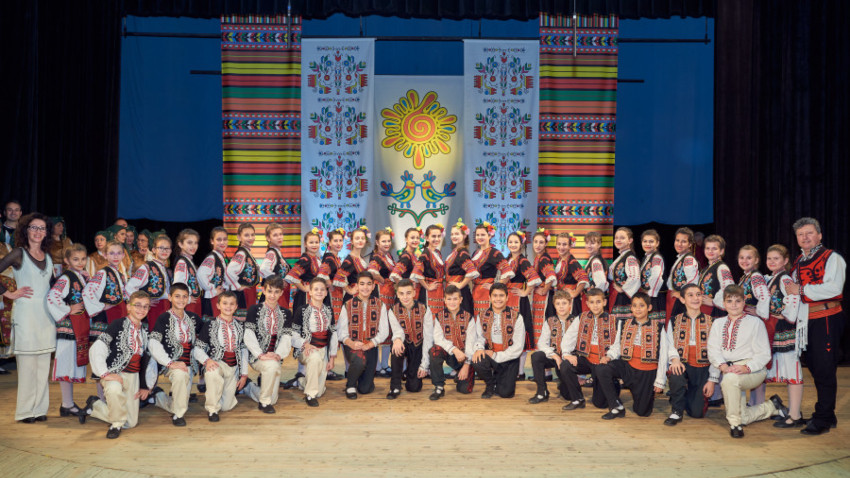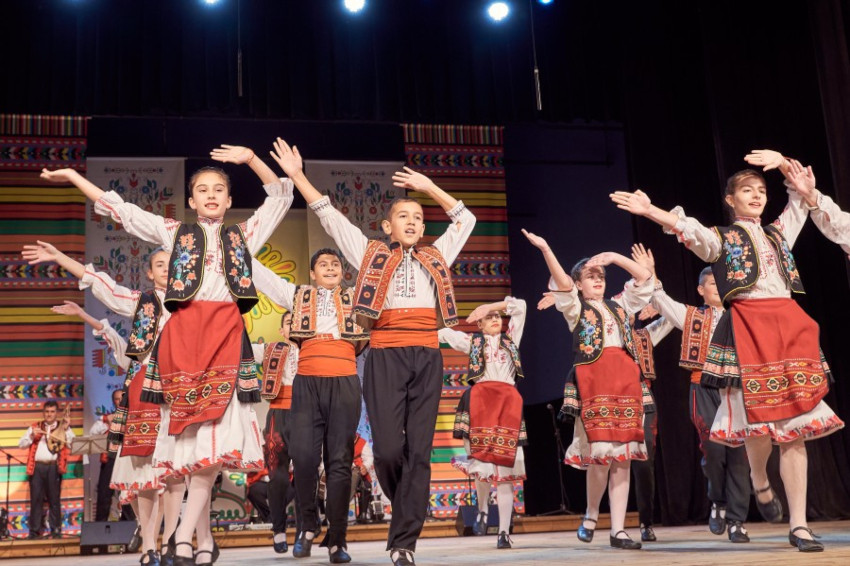In 1856, in the town of Svishtov on the Danube, four National Revival leaders created the first Bulgarian community centre called “chitalishte”, setting themselves several major goals - to open a library, to collect old manuscripts, to support gifted young people to study abroad, to help Bulgarian writers to publish their works and translations. Having originated in times of subjugation in the Ottoman Empire, this noble initiative was based on the mission of awakening and enlightening the Bulgarian people.
The cultural institution that the Bulgarian “chitalishte” represents exists to this day, although over the years it has changed its form and content. There are countless children who have got in close contact with art and broadened their horizons through books in the chitalishte libraries. There are countless adults who have broken away from worries and loneliness thanks to an amateur interest clubs.

However, how does the institution of the chitalishte survive today, when the coronavirus pandemic targets everything and each one of us - sometimes choosing to inflict a fatal blow, and other times "only" to expose a deep underlying problem?
"The situation is tragic”, is the succinct answer of Vessela Yordanova, who together with her husband Yordan leads the folk dance ensemble "Development" in the town of Sevlievo, Central Bulgaria.
"These years, in which we started work for two weeks and then stopped for two months, the loss of physical shape had an extremely bad effect on the performers. Failure to master the material also has had an impact, as it reduces our concert repertoire. We also have an outflow of children - it is natural for them to withdraw when there are no concerts.”
In 2005, Vessela and Yordan Yordanov became in charge of a folklore ensemble with over 60 years of history, an established reputation and numerous awards, and a year later they created a course for traditional Bulgarian dances. They achieved their greatest success in 2016, when they represented Bulgaria at the Fifth World Folklore Festival in Mexico. On the occasion of the 60th anniversary of the ensemble, they received the award of the Union of National Chitalishte Centres for the best amateur folk ensemble.
"We teach only the traditional Bulgarian folk dances, the so-called horo. Bulgarian folklore does not need simplification and distortion, because we have inherited a huge wealth. Our ancestors did not create these horo dances just for fun. Most of the Bulgarian horo dances are associated with some ritual, some holiday, they are subordinated to something and are performed at a strictly defined time of the year and in a strictly defined way."
On the occasion of March 1, the Day of the amateur performers and amateur art, the Sevlievo community centre "Development - 1870" will traditionally host the gathering of several generations of graduates of the folk ensemble. 17 and 70-year-olds will once again join hands to the sounds of Bulgarian music. But on the eve of the holiday they cannot forget the difficulties and the real risk that their community centre, this unique socio-cultural phenomenon, might soon cease its existence.

"Unfortunately, due to underfunding, the chitalishte community centres have become almost a symbol of amateurism, i.e. of poor quality”, says Vessela Yordanova. “But the children start their contact with the arts in the community centres. Our employees are getting older, and young people who want to teach are reluctant to come here because of low pay. So the community centtrs are deserted both by employees and amateur performers. And if the state in the face of the Ministry of Culture does not want this institution to be preserved, things are really going in the direction of closure. That is why let the politicians answer the question of how we can preserve the Bulgarian mentality, character and national self-confidence and whether the way to do this is by destroying the institution of the Bulgarian chitalishte.”
English version Rositsa Petkova
Photos: sevlievo.bg, chitalishte-razvitie.netBulgarian writer Georgi Gospodinov is one of twelve writers from around the world invited to become international members of the British Royal Society of Literature, the organisation announced on its website . The writers were selected by a committee..
The Faculty of Fine Arts at the University of Veliko Tarnovo "Sts. Cyril and Methodius" celebrates its half-century anniversary with an interesting exhibition based on student theses and works by current professors from the university in the old capital..
Joy, optimism and good mood. This is what the team of the Bulgarian Cultural Institute in Bratislava promise us. On December 8, at Teatro Colorato in the Slovak capital, at 6 p.m. local time, the concert "Let it be Jazz, Let it be..
When was the last time you went to a live music venue? Did you notice the faces of the people there? They were different, weren't they? - This is what the..

+359 2 9336 661
